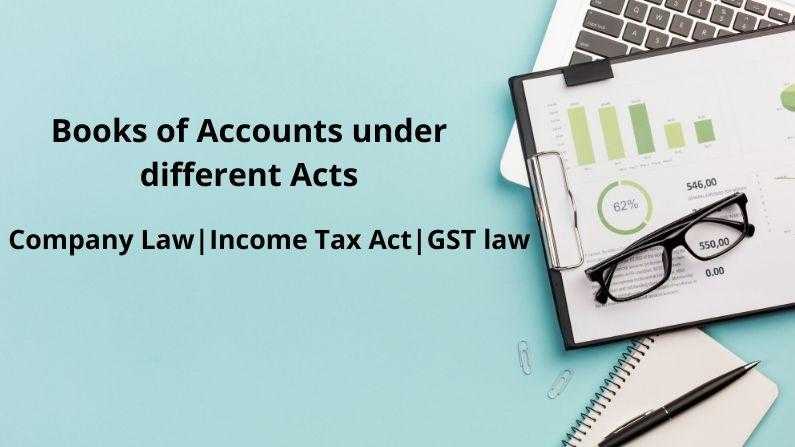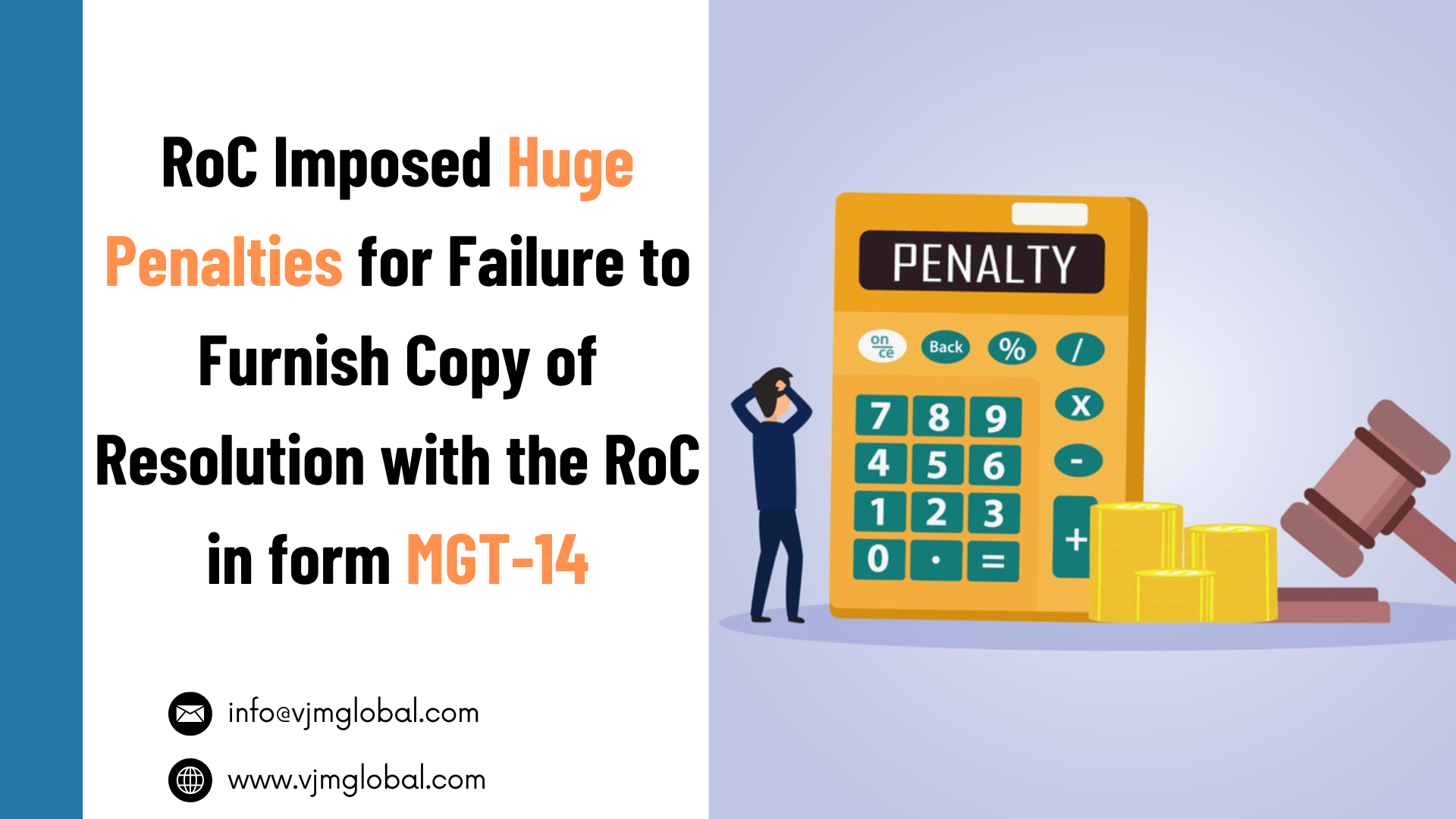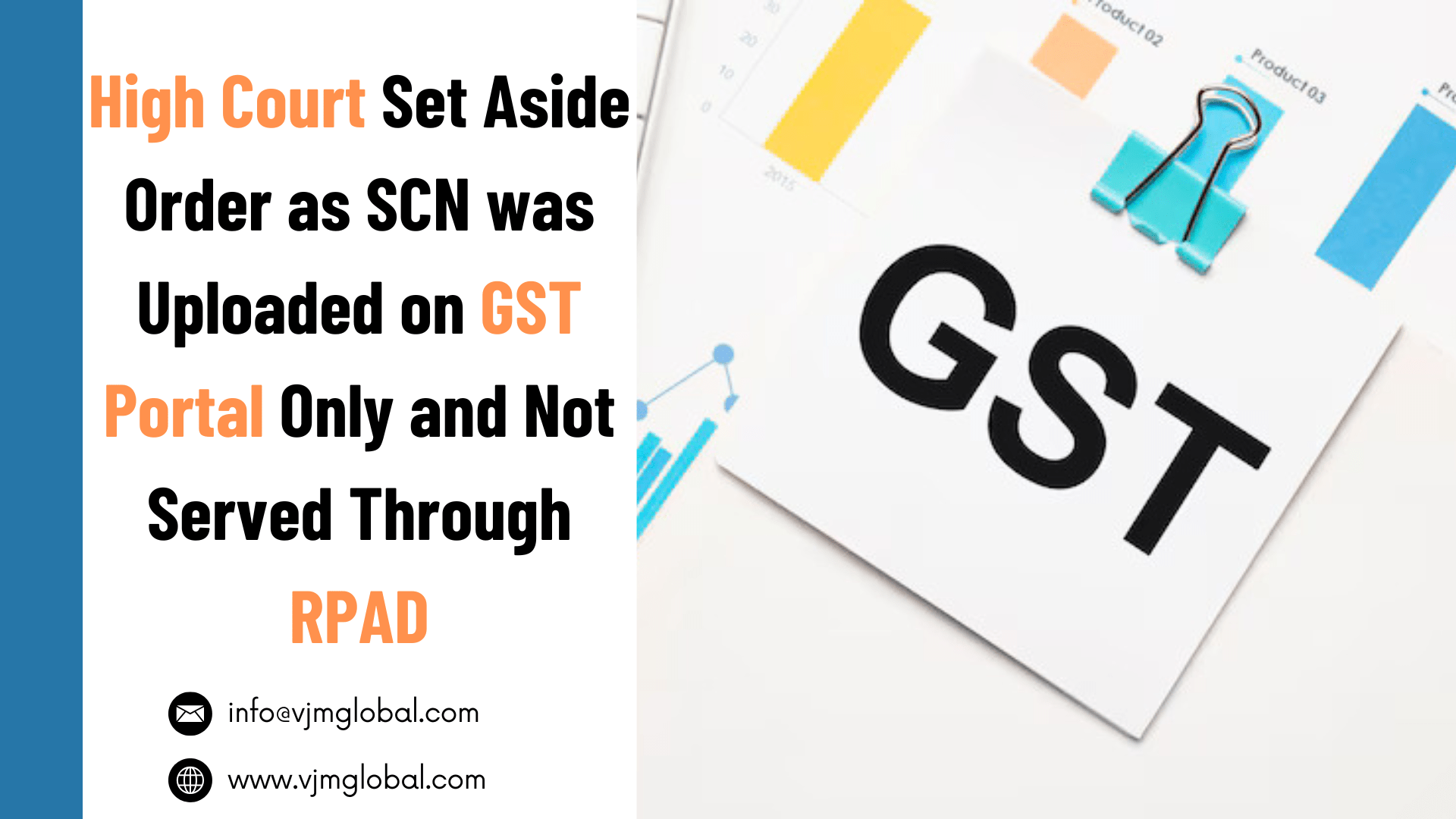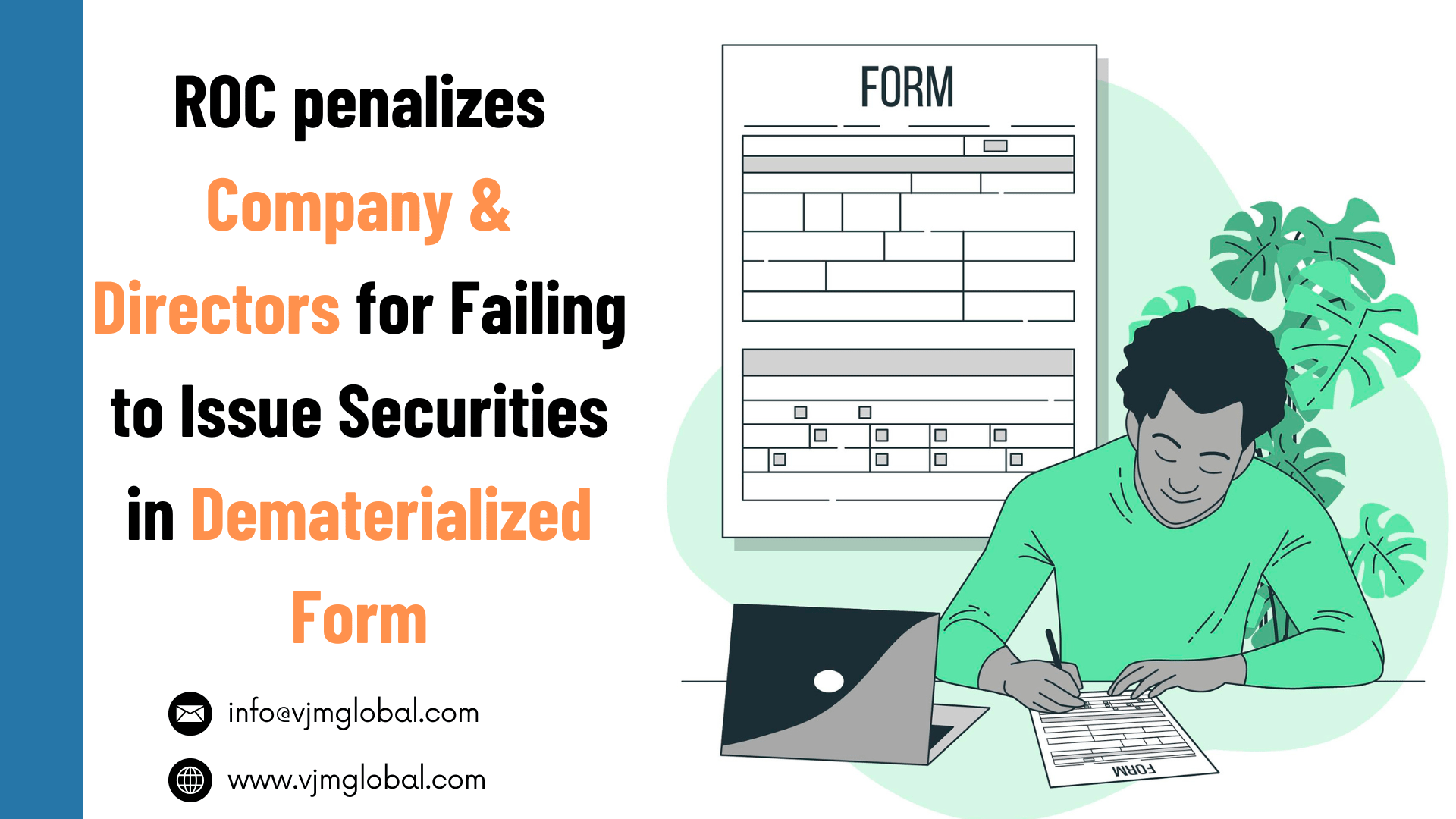Maintenance of books of accounts in any business is one of the most crucial things as it records each and every transaction of company and reflects financial position of the company such as whether company is making profit or incurring losses, assets held by company, liabilities of the company etc.
Therefore, for every statutory compliance purpose such as Companies Act, 2013, Goods & Service Tax Act and Income Tax Act, books of accounts is a pre-requisite.
In this article, we will have a look at the requirement of different laws related to the maintenance of books of accounts.
1. Books of Accounts under Companies Act, 2013
1.1 Requirement of maintenance of books of accounts (Section 128)
Section 128(1) creates an obligation on the company that every company shall prepare and keep following documents at its registered office which gives a true and fair view of the state of affairs of the company:
- books of accounts and
- Other relevant books and papers and
- financial statements for every financial year (FY)
- Section 128(1) of Companies Act, 2013 requires every company to prepare and maintain books of accounts, papers and financial statements for every financial year at its registered office.
Books of accounts must be related to both registered office and branch offices.
Read Also: Keynote on 35th GST Council meeting held on 21 June 2019
Books of accounts must give true and fair view of state of affairs of the company of both registered office and branch office.
Books shall be kept on accrual basis and according to the double entry system of accounting.
1.2 Meaning of Books of Accounts (Section 2(13))
As per Section 2(13) of the Companies Act, 2013, every documents which contains information with respect to following is considered as Books of Accounts:
- Transaction related to sum of money received and spent by a company and nature of transaction in relation to such receipt and expenditure.
- Sale and purchase of goods and services.
- Assets and Liabilities of the company.
- Items of cost.
Therefore, as per companies act, all documents related to receipts and payments such as cash book & Bank book, sales and purchase such as sales register, purchase register, stock inward and outward register, asset & liability such as Fixed Asset Register, ledger of debtors and creditors etc is considered as books of accounts.
1.3 Maintaining books of accounts at places other than a registered office in India (proviso to Section 128(1))
Companies act provides that all or any of these documents or books of accounts may be kept by the company at registered office of the company or any other place in India as board of directors may decide.
1.4 Intimation of such change to the Registrar of Company (proviso to Section 128(1))
The company shall file with the registrar intimation in form AOC-5 about such other place where company shall maintain books of accounts within 7 days of passing board resolution.
Company will be required to furnish information of such other place to RoC within 7 days through filing of form AOC-5.
Following information is required to be furnished in form AOC-5:
- Corporation Identification Number (“CIN”)
- Name and address of the company will auto-populate on the basis of CIN
- Date of Board Resolution
- Address at which books of accounts are to be maintained
- Details pertaining to police station under whose jurisdiction the place of the address at which the books of account are to be maintained falls.
1.5 Period of maintenance of Books of Accounts
Every company is required to maintain books of accounts for 8 financial years. However, in case an investigation has been ordered against the company, central government may extend such period.
1.6 Penalty for Non keeping books of accounts under Companies Act 2013
Any non-compliance with respect to provisions of Books of Accounts by managing director, the whole-time director in charge of finance, the Chief Financial Officer or any other person then such person of the company shall be punishable with:
- imprisonment, which may extend to one year or
- fine, which shall not be less than INR 50,000 but shall not exceed INR 5,00,000
Compliance for companies registered under ROC
2. Books of Accounts under Income Tax Act, 1961
Every statute requires maintenance of documents to that extent which helps in completing compliance under such act.
Similarly, Income Tax Act requires maintenance of books of accounts and documents which may enable Assessing officer to compute his total taxable income.
2.1 Books of Accounts by Notified Professional (Section 44AA(1) read with Rule 6F)
Section 44AA(1) of Income Tax Act, 1961 requires following professional to maintain their books of accounts irrespective of quantum of their total income or aggregate turnover:
- Legal,
- Medical,
- Engineering or
- Architectural profession or
- Profession of accountancy or technical consultancy or
- Interior decoration or
- Authorised representative or
- Film artist
- Any other profession as is notified by the Board in the Official Gazette
Provided no books of accounts are required if total gross receipts does not exceeds INR 1,50,000 in any one of the 3 immediately preceding financial years. In case of newly setup enterprises, doesn’t likely to exceed INR 1,50,000 during current year.
2.2. Books of Accounts by other professionals and business (Section 44AA(2))
Every person carrying on profession other than mention above or business shall maintain books of accounts in following cases:
Case:1– If income from business or profession exceeds INR 1,20,000 or his total sales, turnover or gross receipts, as the case may be, in business or profession exceed or exceeds INR 10,00,000 in any one of the 3 years immediately preceding the previous year.
Case-2: where the business or profession is newly set up in any previous year then if income from business or profession is likely to exceed INR 1,20,000 or his total sales/turnover or gross receipts in business or profession is likely to exceed INR 10,00,000 during such previous year; or
Case-3: where assessee deemed profits and gains from business under:
- section 44AE (Special provision for computing profits and gains of business of plying, hiring or leasing goods carriages) or
- section 44BB (Special provision for computing profits and gains in connection with the business of exploration, etc., of mineral oils) or
- section 44BBB (Special provision for computing profits and gains of foreign companies engaged in the business of civil construction, etc., in certain turnkey power projects)
and assessee has claimed his income lower than deemed profits or gains under these sections.
Case-4: where provisions of section 44AD(4) are applicable and total income of assessee exceeds the maximum amount which is not chargeable to income-tax in any previous year,
In case 1 & 2, for individual and HUF, INR 1,20,00 shall be replaced with INR 2,50,000 and INR 10,00,000 shall be replaced with INR 25,00,000.
2.3 List of Books of Account (Rule 6F)
Following documents are required to maintain as per Rule 6F for the purpose of Income Tax Act, 1961:
- Cash Book,
- Journal, if the accounts are maintained according to the mercantile system of accounting,
- Ledgers
- Carbon copies of bills serially numbered issued or received by assessee,
- Original bills issued to the person and receipts in respect of expenditure incurred by the person
- where bills and receipts are not issued and the expenditure incurred does not exceed INR 50,000 then payment vouchers prepared and signed by the person
Please note that Books should be maintained for a period of 6 years from the end of the relevant year
2.4 Penalty for Non keeping books of accounts under Income Tax Act, 1961
Penalty for non-maintenance of books of accounts under section 44AA of Income Tax Act, 1961 is INR 25,000 levied by Section 271A.
3. Books of Accounts under Goods and Services Tax, 2017
Provisions related to maintenance of books of accounts are given under Chapter VIII- Accounts and records under Central Goods and Service Tax Act, 2017.
1.1 Books of Accounts to be maintained (Section 35 )
Section 35 requires every registered person to maintain following books of accounts related to:
- production or manufacture of goods;
- inward and outward supply of goods or services or both;
- stock of goods;
- input tax credit availed;
- output tax payable and paid; and
- such other particulars as may be prescribe.
3.2 Place to keep books of Accounts
Registered person shall keep books of accounts at that place of business as mentioned in certificate of registration. Where more than one place of business is mentioned, documents related to each place of business shall be kept at such places of business.
Books of accounts may be maintained in electronic form.
3.3 Period of maintenance of books of Accounts (Section 36)
Every registered person shall keep and maintain books of account or other records until the expiry of 72 months from the due date of furnishing of annual return for the year pertaining to such accounts and records.
3.4 Penalty for Non keeping books of accounts under CGST Act, 2017
In case of non-maintenance of books of accounts under GST, penalty of INR 25,000 will be charged.













